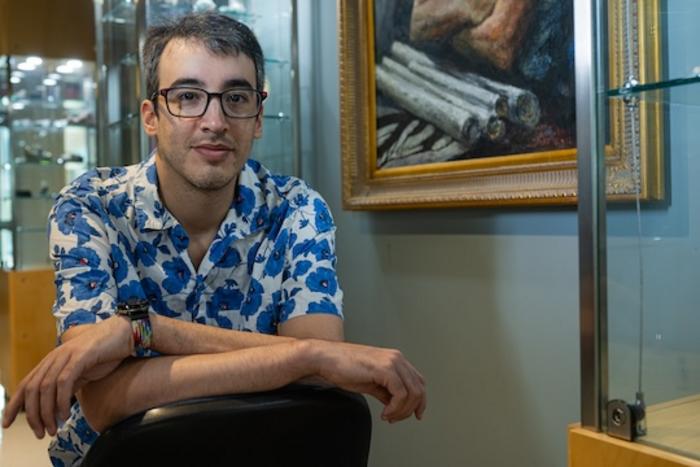Mark Torres, assistant professor of Earth, environmental and planetary sciences at Rice University, has won a National Science Foundation (NSF) CAREER Award to unlock new insights in river water chemistry, including its implications for addressing environmental concerns.

Credit: Photo courtesy of Jeff Fitlow/Rice University.
Mark Torres, assistant professor of Earth, environmental and planetary sciences at Rice University, has won a National Science Foundation (NSF) CAREER Award to unlock new insights in river water chemistry, including its implications for addressing environmental concerns.
Torres’ five-year, $612,930 grant is to develop innovative approaches for analyzing variations in river water chemistry. He will lead a research team to shed light on the interplay between water flow and chemical reactions to better understand the effects of climate change on water resources.
“The chemistry of rivers changes day to day, week to week and year to year,” Torres said. “This variability tells us what’s going on as rainwater flows through soils and into rivers.”
The project will use data collected from the same river to observe how long it takes water to flow through watersheds and how quickly its chemistry changes as it flows. Torres’ project will employ machine learning approaches to infer these rates from the data.
To bridge the gap between theory and practical application, undergraduate students will play a key role. The project aims to foster a new generation of researchers with hands-on experience and a deep understanding of environmental challenges by engaging them through engineering design courses, internships and public outreach programs on local water quality issues.
“In addition to advancing our understanding of river water chemistry, this project will have broader implications for planetary habitability,” Torres said. “Rivers are a key component of the carbon cycle and help to regulate the amount of carbon dioxide in the atmosphere. It can be hard to apply the lessons learned from one river to the entire globe, but we will be working on a better way to do this kind of extrapolation.”
The project also involves the development of a design-for-purpose autosampler, which will lower barriers to collecting time-series data to not only enhance research capabilities but also provide invaluable learning opportunities for undergraduate engineering students.
As the research for the project progresses, its findings are anticipated to inform policy decisions and drive sustainable solutions for safeguarding our planet’s waterways.
Torres earned a B.A. in geology from Pitzer College in 2010 and a Ph.D. in geochemistry from the University of Southern California in 2015. He worked as a Texaco postdoctoral fellow at the California Institute of Technology from 2015-17. He joined the Rice faculty in 2017.
The highly competitive NSF grants are awarded each year to a select cohort of about 500 early career faculty across all disciplines engaged in groundbreaking research and committed to growing their field through outreach and education.




